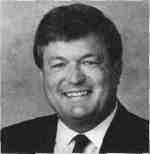ACROSS THE BOARD
Over the years I have received hundreds of letters and phone calls from both board members and professionals regarding problems that affect the efficiency and productivity of the board and the district. In working with these agency leaders, I offer confidential counsel regarding possible solutions to these problems. I don't claim to be a foremost expert. Following are several problem areas and solutions that can serve as useful discussion points for board retreats or IAPD regional roundtables. All case studies have been generalized so as not to identify a particular agency.
Problem 1: Communications Breakdown
1. Never assume board members read all the information and reports that you send them. 2. Although they read it, do they understand it? 3. Is what they read, what they want to read?
Possible Solutions to Poor Communications:
• Board members should communicate with the director about information they prefer and "don't need."
• Directors should always attempt to present pro's and con's regarding issues, as well as offer the board
Problem 2: Board Member Meddling in Day-to-Day Operations (Micro-Managing)
For example, one board member often called the district office and directed a staff member to perform some clerical work for him. Another director tells the story where a three-member board committee (from a seven-member board) overstepped its limits by approving a printing contract not seen by the director or other board members. And what about the board member who attempts to direct the staff and even the director? Board member meddling of this type not only disrupts the daily operation of the district, but it can be especially damaging to the morale of the staff and reflects very negatively if such stories are leaked to the local media.
6 * Illinois Parks & Recreation * March/April 1996 Where are the boundaries for board members? How do you clearly draw the line?
Possible Solutions to Board Member Meddling:
• A board member only acts alone in expressing opinions and must act on behalf of the entire board when
• One member cannot direct staff and/or the CEO. Directors are hired to direct staff. Board members serve
Problem 3: When does a director's decision require board member input?
Who awards vendor contracts? Who establishes the annual goals for the park district or forest preserve?
Possible Solutions:
• A good policy manual can help answer many of these questions. If you can't find the answers in the • Nevertheless, when in doubt, place the issue/subject on the agenda for discussion at the next board meeting.
How do you handle similar problems or other problems in your district?
What advice can you share with
other agencies? Remember, the only way we can resolve problems is
to first recognize that problems exist.
Occasionally, I want to include in this boardmanship section
a selection of these problems. However, to
assess whether or not you want these problem-solving articles,
I need your willingness to share stories and
problems. Send us your problems and advice along these lines.
We promise confidentiality and to share the
substance of your scenarios with others who can benefit.
If we don't hear from you, it could mean that this experimental article is not
what you want in the "Across
the Board" section of the magazine.
Illinois Parks & Recreation * March/April 1996 * |
|||||||||||||||||

